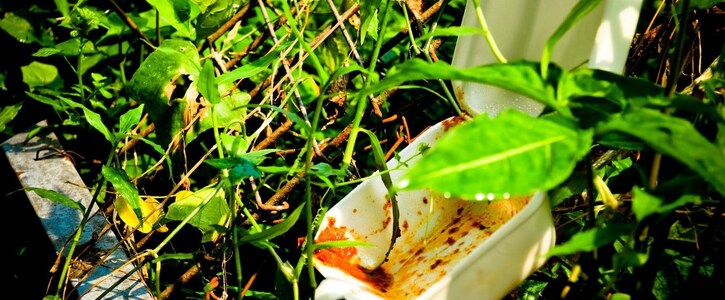100 signatures reached
To: Marvin Rees
Make Bristol Polystyrene Free

Put in place a rule whereby polystyrene takeaway boxes are banned and replaced with packaging made from natural, renewable, 100 percent biodegradable and compostable materials.
Why is this important?
Polystyrene is toxic and non-biodegradable, so can take hundreds of years to degrade, while alternatives such as cardboard or bamboo can disappear rapidly and pose no risk to health.
It is infuriating to know the potential health issues associated with this material, whilst also having to dispose of the packaging from takeaway food knowing that it will end up in a land fill, the ocean or washed up on a beach.
The US has taken the lead on this and many cities have already partially or completely banned the use of polystyrene.
Reasons for the proposed ban include:
1, It does not biodegrade. It may break into small pieces but the smaller polystyrene gets, the harder it is to clean up.
2, It is made of fossil fuels and synthetic chemicals. Those chemicals may leach if they come in contact with hot, greasy or acidic food. Yes, they keep your takeaway food hot, but they may add an unwanted dose of toxins to your body. Styrene is used to make polystyrene plastic and is a contaminant in all polystyrene packaging. A 1988 survey, published by the Foundation for Advancements in Science and Education found styrene in human fatty tissue with a frequency of 100% at levels from 8 to 350 nanograms per gram. This amount is one-third of the level known to cause neurotoxic symptoms in humans. Styrene attacks the central and peripheral nervous systems and the accumulation of this material in the tissues of the brain, spinal cord, and peripheral nerves is correlated with acute or chronic functional impairment of the nervous system.
3, Animals can also eat it. Turtles and fish seem to mistake polystyrene for food, and that can kill them. Not only can they not digest it, but the foam could be full of poisons that it has absorbed from contaminants floating in the water.
4, It can’t be recycled. Some commercial mailing houses may accept packing peanuts, but for the most part recycling centers do not accept throwaway polystyrene food containers. Bristol is an example of a city that does not have the capacity to recycle polystyrene currently
It is infuriating to know the potential health issues associated with this material, whilst also having to dispose of the packaging from takeaway food knowing that it will end up in a land fill, the ocean or washed up on a beach.
The US has taken the lead on this and many cities have already partially or completely banned the use of polystyrene.
Reasons for the proposed ban include:
1, It does not biodegrade. It may break into small pieces but the smaller polystyrene gets, the harder it is to clean up.
2, It is made of fossil fuels and synthetic chemicals. Those chemicals may leach if they come in contact with hot, greasy or acidic food. Yes, they keep your takeaway food hot, but they may add an unwanted dose of toxins to your body. Styrene is used to make polystyrene plastic and is a contaminant in all polystyrene packaging. A 1988 survey, published by the Foundation for Advancements in Science and Education found styrene in human fatty tissue with a frequency of 100% at levels from 8 to 350 nanograms per gram. This amount is one-third of the level known to cause neurotoxic symptoms in humans. Styrene attacks the central and peripheral nervous systems and the accumulation of this material in the tissues of the brain, spinal cord, and peripheral nerves is correlated with acute or chronic functional impairment of the nervous system.
3, Animals can also eat it. Turtles and fish seem to mistake polystyrene for food, and that can kill them. Not only can they not digest it, but the foam could be full of poisons that it has absorbed from contaminants floating in the water.
4, It can’t be recycled. Some commercial mailing houses may accept packing peanuts, but for the most part recycling centers do not accept throwaway polystyrene food containers. Bristol is an example of a city that does not have the capacity to recycle polystyrene currently

